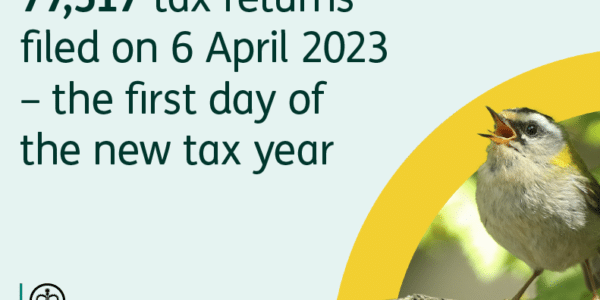The workplace trend that prioritises wellbeing over overachieving
10/05/2023 - Rethinkly

Following the pandemic, employees have found it increasingly difficult to keep up with their ambitions in the workplace, prioritising wellbeing over traditional career milestones, being touted as “quiet ambition”. Research from Rethinkly– a metaverse platform helping businesses resolve communication challenges in the workplace – supports this, finding that 39% of Brits stated they would prioritise their wellbeing over a higher salary or career progression. As a result, workplace trends such as ‘quiet ambition’ become symptomatic of the workforce’s changing needs – catalysing companies to audit their culture. In light of this, co-founders of Rethinkly – Andrew Jackson and David Tinker, discuss the need for firms to prioritise employee wellbeing through better communication.
According to a new report published by Fortune, the consequences of a worldwide pandemic, rising inflation, and a potential recession have left workers reassessing what is truly important to them. As a result, trends like quiet ambition are storming the workplace, with mental health and wellbeing support becoming a greater priority for workforces. Rethinkly’s platform helps facilitate communication in a virtual world setting, which lies at the heart of poor company culture.
Additionally, a poll conducted by CNBC surveying over 5,000 women found that while 48% would describe themselves as ‘very ambitious’, the definition surrounding ambition is shifting from earning a high salary and a powerful position to one that is more personal. Consequently, it is crucial that workplaces adapt to these adjustments and ensure their employees can feel the active changes being made to support them. Co-founders of Rethinkly discuss the importance of communication in the workplace and how companies can prioritise wellbeing.
Co-founders of Rethinkly Andrew Jackson and David Tinker discuss the importance of communication in the workplace and how companies can prioritise wellbeing:
“Whether work is a grind or a dream job, we spend an average of 13-14 years of our lives doing it! Work has a huge impact on our wellbeing which underpins the culture, the relationships, and the way work gets done. Ambitious organisations understand their role in actively addressing employee wellbeing and the opportunity for their businesses. There is a direct payback both financially as data shows spending £1 will get them £5 back, and in growth by unlocking innovation and creativity. ”
“Consider as well how much organisations spend on health insurance and sick leave payments, versus how much they spend helping employees to communicate better and build better relationships. Turning the equation around will help to improve the bottom line. With better communication and more reflection business can expect to see a direct positive impact.”
All articles on this news site are submitted by registered contributors of EssexWire. Find out how to subscribe and submit your stories here »


